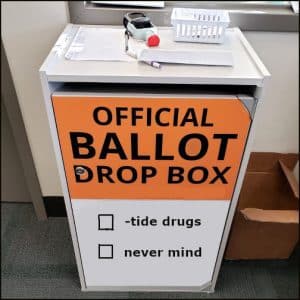For the past few months, the -tide drugs (GLP-1 agonists) have dominated obesity news. As we have seen, the debate over the new weight-loss drugs has been intense and ongoing. Meanwhile, the manufacturers periodically quit advertising, because they are running out of stock. As the development of similar drugs has been hyped up and fast-tracked, the publicity has been overwhelming. Seasoned observers have predicted a pharmaceutical arms race.
Some headlines are real head-scratchers
A new drug has shown “significant and superior weight loss” compared to placebos. A reputable producer runs placebo trials and, though this is not always possible, ideally nobody knows who receives the active treatment and who the fake. In the end, the results are compared.
The point being, the product needs a minimum passing score. Not to rain on the parade, but better performance than a placebo is not exactly a stellar accomplishment. Surely, the very least we would expect from any pharmaceutical is for it to do better than an inert substance like sugar. (It seems strange that in a medical context, sugar, of all things, is considered “inert.”)
We want the benefits without the shots
In this corner of the market, the holy grail to be sought is oral, not injectable. The first company to come up with something as effective as these drugs, but without the needles, will clean up big-time. Isabella Backman wrote of retatrutide for the Yale School of Medicine:
Researchers […] are also testing oral formulations of this class of drugs, including higher doses of oral semaglutide, an oral formulation of the peptide which recently completed phase 3 obesity trials, as well as […] GLP-1 receptor agonists such as orforglipron… Oral formulations of these medications may provide options for patients who prefer pills to injections, which could improve accessibility.
A poll conducted by KFF (a nonpartisan health policy research group) showed something that didn’t really need a poll to reveal it. When it comes to the new wave of weight-loss drugs, men are much less interested than women — especially women between 30 and 64 years of age. But among women under 30, only four in 10 expressed interest.
Meanwhile, once they learn the details behind the headlines, some potential patients find their eagerness waning and start to back away. Journalist Shefali Luthra wrote,
When poll respondents were told that halting those drugs could mean regaining the weight they lost, interest declined and the gender gap disappeared. Interest also generally declined when respondents were told the weight-loss drug may be available as an injection, not a pill; that it might not be covered by insurance; and that it may not be approved by the FDA for weight loss specifically.
Your responses and feedback are welcome!
Source: “Retatrutide Is Highly Effective in Treating Obesity,” Medicine.yale.edu, 06/30/23
Source: “Weight-loss drugs like Ozempic are more likely to interest women than men, poll finds,” 19thnews.org/, 08/04/23
Image by Bryan Alexander/CC BY 2.0
